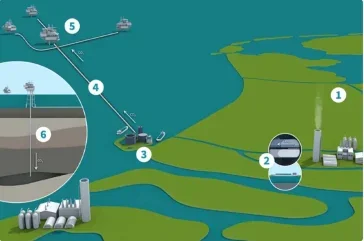
The Aramis project aims to contribute to the reduction of CO₂ emissions for hard-to-abate industries. It will transport CO₂ and store it in depleted offshore gas fields under the North Sea. Its location on the Maasvlakte in the Port of Rotterdam makes the CO₂ transport and storage service accessible to various industrial clusters.
Energy services company Petrofac has overall responsibility for the FEED for the 81cm diameter CO2 trunkline, including onshore, landfall and offshore sections, together with the offshore CO2 distribution hub platform.
Arup provided in-depth design definition to enable the tendering of an engineering, procurement and construction contract to deliver the project’s pipeline landfall tunnel. The company had to overcome several construction and ground condition challenges, including how to retrieve the TBM once construction of the tunnel is complete.
The new pipeline will span sensitive assets, including one of the busiest shipping lanes in the world, connecting to the remaining pipeline to be laid within the seabed.
Mark Neller, energy leader, UKIMEA at Arup, said the Aramis project was an important step in the development of CCS systems in Europe.
“Arup’s expertise was integral to the design of the 2km trenchless undersea tunnel from the Port of Rotterdam. The multidisciplinary nature of our team meant we contributed to project components across the engineering spectrum,” he said.
Arup’s global carbon capture and storage lead, Jemima Bruin-Bland, said the tunnel design would be a critical success factor in many of the fast-emerging global CCS projects, particularly as globally interconnected infrastructure for CO2 transport and storage continued to emerge.







